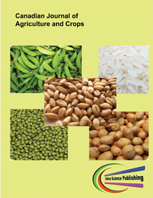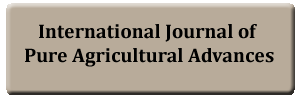Sustainable land management practices and its correlates among smallholder food crops farmers in Ogbomoso agricultural zone of Oyo state
DOI:
https://doi.org/10.55284/cjac.v8i1.911Keywords:
Crop-rotation, Food crop, Land, Multivariate, Probit, Terrace.Abstract
The increasing declination of the soil nutrient, land degradation and loss due to desertification has called for sustainable land management (SLM) practices. Smallholder farmers who are the major food producers in Nigeria faced challenges of land management due to land tenure security and fragmentation. However, this study examines SLM and its correlates among smallholder food crops farmers in Ogbomoso Agricultural zone of Oyo State. About 240 smallholder farmers were proportionately sampled from the study area. Using Focus group discussion, the needed information for this study was collected from the farmers. Both Descriptive statistics and Multivariate probit model was applied to analyse the information collected from the sampled farmers. About 40.8% of farmers practice mixed cropping, 27.5% and 15% practice minimum tillage and crop rotation respectively. Although, most (45.8%) acquire the farmland through inheritance, 18.3% rent the farmland while 14.2% purchase the farmland but the choice for the SLM depends on factors such as age, gender, household-size, education, farm-size, tenure security, extension contact, experience, number of farm plots and farm distance. In conclusion, demographic factors, farm-specific factors and tenure security are important drivers of the choice of SLM; therefore an urgent need to prioritize tenure security for increasing sustainability of agricultural land is required.


